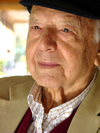Feeling Tired After Stroke

Fatigue is defined as loss of energy or strength. Around 30-70% of stroke survivors feel very tired or have fatigue.
What Do You Need to Know?

It is normal for your loved one to tire easily. After a stroke, simple tasks, like sitting up or standing, may be exhausting. With time, your loved one should get back strength and energy.
Health issues that decrease energy after a stroke include:
- Muscle weakness
- Paralysis
- Pain
- Poor nutrition and weight loss
- Sadness or depression
Why Is It Important to Get Help?
Fatigue can slow down your loved one’s recovery. It is important for your healthcare team to learn the cause of fatigue. Sometimes fatigue is due to medical problems that can be treated. At other times, fatigue is due to side effects of medicines. The good news is there are treatments and ways to decrease fatigue.
What Treatments Should You Discuss with Your Healthcare Team?
- Medicines often help if fatigue is due to pain or depression.
- A social worker, psychologist, or psychiatrist can help your loved one with depression.
- A physical therapist (PT) can teach exercises to build strength. A PT can show your loved one how to move and save energy.
- An occupational therapist (OT) can teach new ways to do everyday tasks to save energy. An OT can suggest changes to make in your home to help your loved one move around.
Helpful Tips
- Encourage your loved one to eat healthy foods like fruits and vegetables.
- Give your loved one plenty of water to drink. Decreased amounts of liquids can cause fatigue.
- Plan frequent rest periods.
- Help your loved one get a good night’s sleep. Limit caffeine after lunch. Get up and go to bed at the same time each day.
- Help your loved one stay active. Too much bed rest can weaken muscles.
- Work with your healthcare team to develop an exercise plan.
Remember
- Fatigue is a common problem after stroke.
- Talk with your healthcare team about your loved one’s fatigue.
- Frequent rest periods are important.
- Help your loved one exercise and stay active.
Other Resources 
Additional credible resources on this topic can be found here. Website pages may change or update, therefore if a link does not work, you may also try to type the information into your internet search bar. This Resource List will be updated frequently.
|
*Link Disclaimer: Links to information and Web sites outside of the Department of Veterans Affairs do not indicate an endorsement of products or services offered by the sites. In addition, these sites may have privacy and security policies that are inconsistent with those of VA. |
References: National Stroke Association. (2006). Stroke Facts; Managing Fatigue. Retrieved June 10, 2008, from: http://www.stroke.org/site/DocServer/NSAFactSheet_Fatigue.pdf?docID=991*; American Stroke Association. (2008). Let’s Talk About Feeling Tired After Stroke. Retrieved September 15, 2008, from: http://www.strokeassociation.org/presenter.jhtml?identifier=3018610*.
These materials were created for the project:
Web-Based Informational Materials for Caregivers of Veterans Post-Stroke
Project Number SDP 06-327 funded by VA HSR&D Quality Enhancement Research Initiative (QUERI)



















